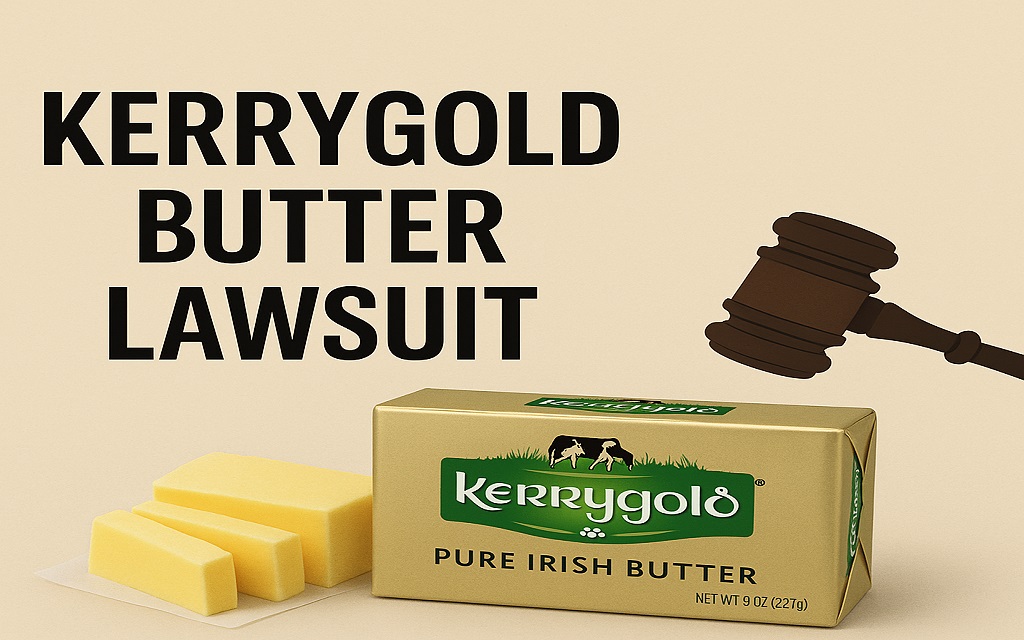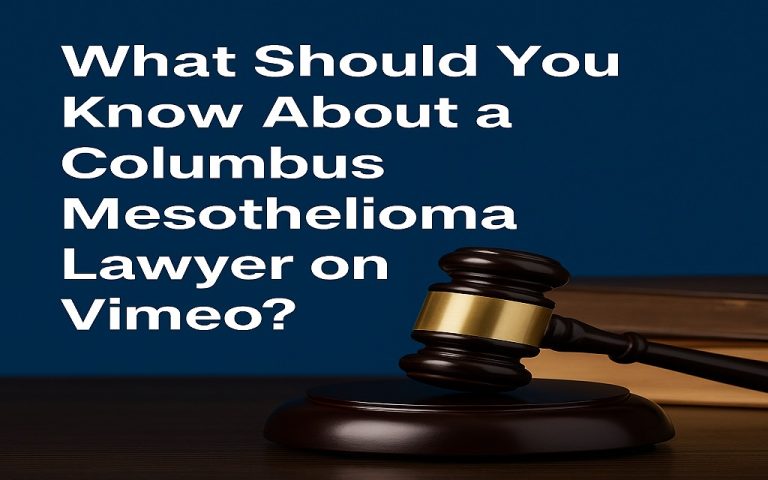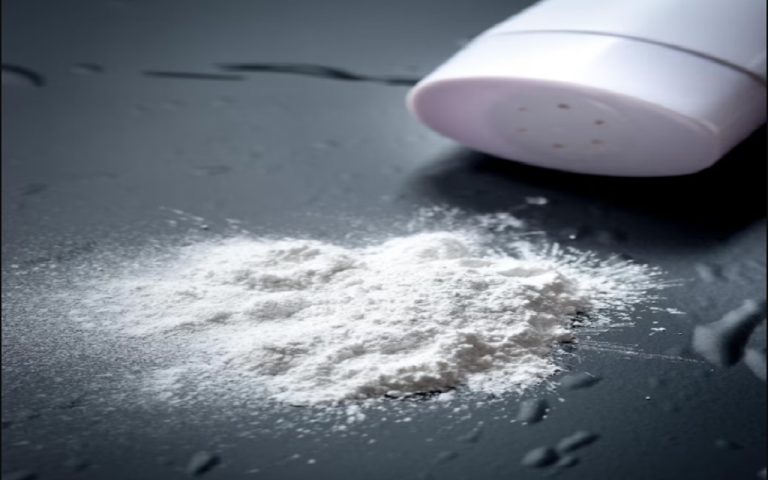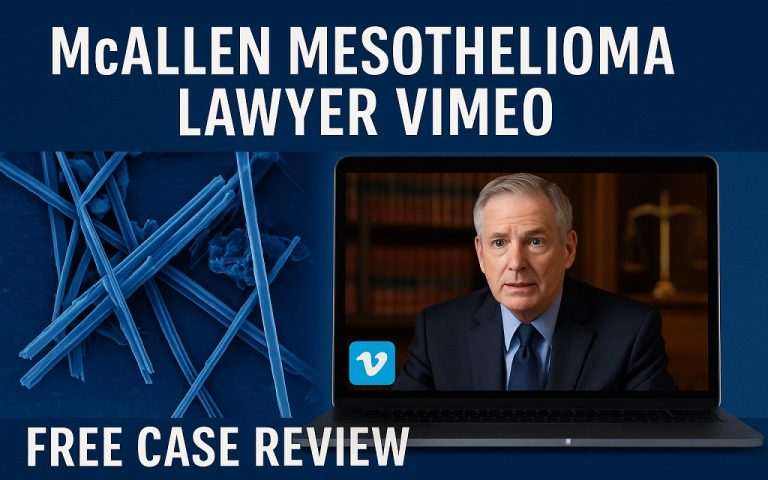Have you heard about the Kerry gold butter lawsuit? Many shoppers trusted its “Pure Irish Butter” label. A class action claimed the product wasn’t as pure as advertised. You deserve to know what was inside that golden wrapper—and what the courts decided. Please keep reading to learn how a popular butter brand ended up in legal trouble and what it means for your next grocery run.
What Is the Kerry Gold Butter Lawsuit?
Kerry Gold Butter could be seen on store shelves with large labels that read “Pure Irish Butter.” Many consumers trusted this branding. But then there was legal action. The product’s purity claim was contested in a class-action lawsuit. The plaintiffs contended that the butter was contaminated by chemicals that were discharged from the package.
It is essential to recognize that PFAS was the primary focus of the complaint. These substances have been connected to immunological diseases, thyroid conditions, and cancer. The Environmental Protection Agency (EPA) claims that PFAS can linger in the body for years. We refer to them as “forever chemicals.”
You should ask why packaging matters so much. According to the lawsuit, the butter itself was tainted by PFAS in the wrapper. Customers thought they were duped as a consequence. They expected a pure product but received something else.
Why Did the Case Target Kerry Gold?
You need to understand the product’s popularity. Kerry Gold is Ireland’s most famous butter brand. It ranks high among premium imported dairy products in the United States. Sales have increased in recent years, driven by claims of purity and the use of natural farming methods.
Consumer trust plays a significant role. Marketing for Kerry Gold focused on clean labeling. Words like “pure,” “natural,” and “wholesome” influenced buyer decisions. Many families choose Kerry Gold over conventional butter. They believed they were avoiding harmful substances.
It is essential to note what the plaintiffs claimed. According to court filings, packaging used by Kerry Gold tested positive for PFAS. Chemicals from the wrapper allegedly seeped into the butter, according to the lawsuit. Consumer rights violations and misleading marketing were the main points of contention.
Which Legal Claims Were Made in the Lawsuit?
You should review the core legal basis. Plaintiffs relied on consumer protection laws. They cited false advertising and misrepresentation under New York law—the class-action status aimed to represent all U.S. consumers who purchased Kerry Gold butter.
The complaint included the following key claims:
- False advertising under state consumer laws
- Deceptive labeling practices
- Breach of implied warranty
- Unjust enrichment
It is essential to clarify how false advertising operates within the context of food law. Brands must prove claims made on labels. If a label says “pure,” it must meet a reasonable consumer’s expectation of purity. You should note that the court examined whether the presence of PFAS violated that expectation.
How Did Kerry Gold Respond?
You may wonder how the company defended itself. Kerry Gold’s parent company, Ornua, denied the claims. It stated that its packaging met regulatory standards. The company did not confirm the presence of PFAS in its materials.
The legal team for Kerry Gold filed a motion to dismiss. They argued that the packaging did not guarantee a completely chemical-free status. They also claimed that trace amounts of PFAS did not violate labeling laws.
According to Law360, Kerry Gold maintained that the word “pure” reflected the brand’s identity, not its scientific purity. Courts often evaluate the reasonable consumer standard in such cases.
What Was the Court’s Decision?
It is significant to remember that the court dismissed the lawsuit. A judge in New York decided in 2024 that the plaintiffs had not proven their case. The main reason for the dismissal was a lack of evidence.
The decision emphasised the absence of conclusive scientific evidence. If PFAS levels were found, the court observed that they were not above regulatory safety requirements. Furthermore, there was no discernible link between the health concerns of consumers and the materials used in packaging.
The judge declared that “marketing puffery is not actionable.” That phrase often applies when companies use subjective or general language in advertising. Words like “natural,” “best,” and “pure” typically fall under this legal category.
Why Are PFAS Important and What Are They?
One may wonder why PFAS have grown to be such a significant problem. Per- and polyfluoroalkyl compounds are referred to as PFAS. These synthetic compounds are resistant to heat, oil, and water. Manufacturers use them in apparel, non-stick cookware, food packaging, and other goods.
Exposure to PFAS has been linked in scientific studies to several health hazards. Links between cancer and liver damage have been verified by the Centers for Disease Control and Prevention (CDC). You should be aware that PFAS can build up in breast milk, blood, and even fetuses.
A 2023 Consumer Reports test found measurable quantities of PFAS in more than 100 everyday food products. That included some butter wrappers. Public awareness continues to grow. Federal agencies now conduct broader risk assessments.
What Are the Broader Legal Implications?
You need to consider the broader legal impact. Kerry Gold butter lawsuit involving PFAS is now emerging in multiple industries. Courts have seen legal actions against fast-food chains, bottled water brands, and cosmetics companies.
Legal scholars describe a rising trend in chemical exposure litigation. Cases often use data from independent lab testing and health studies. According to the Harvard Law Review, PFAS lawsuits are expected to influence product liability laws over the coming decade significantly.
The Kerry Gold case adds to this trend. It illustrates how branding language can be subject to legal scrutiny. Even without a successful ruling, the lawsuit sparked debate. Law firms now monitor similar brands for potential violations.
How Can Consumers Protect Themselves?
Take simple steps when choosing food products. First, read the packaging carefully. Look for certifications like USDA Organic or third-party verifications.
Second, avoid packaging labeled as “grease-resistant” or “microwave-safe” without further details. Many of those wrappers may contain PFAS.
Third, follow reports from watchdog groups. Nonprofits, such as the Environmental Working Group (EWG), publish lists of food products that have been tested. Consumer Reports also issues regular updates.
You can stay informed using tools like the FDA’s PFAS exposure portal. Many online databases track ongoing litigation and test results.
What Can Brands Do to Avoid Lawsuits?
Companies must improve packaging transparency. You should be aware that regulatory pressure continues to intensify. California banned PFAS in food packaging by 2023. Other states follow that model.
To avoid lawsuits, brands should:
- Test materials regularly through certified labs
- Remove PFAS and similar compounds from supply chains
- Update marketing to align with current science
- Disclose chemical testing results on websites
- Adopt clear third-party verification practices
Failure to act increases legal and reputational risk. Consumer expectations shift quickly. Innovative companies stay ahead of regulatory trends.
What Role Do Courts Play in Consumer Protection?
Judges often serve as gatekeepers in the early stages of litigation. You should understand that not all claims make it past the motion-to-dismiss phase. Plaintiffs must show harm, misrepresentation, and a violation of reasonable standards.
Courts strike a balance between free market advertising and public safety. The Kerry Gold case demonstrated that courts continue to hesitate to penalize vague brand language. However, that may change as PFAS research advances.
According to legal analysts from Cornell Law School, chemical-related lawsuits now demand stronger scientific support. That standard requires cooperation between public health groups and plaintiff attorneys.
Must Read: Venice Italian Restaurant Hollywood FL Lawsuit: What Should You Know?
Why Do Words Like “Pure” Matter?
You should consider how language influences perception. Marketing teams choose words carefully. Terms like “pure,” “clean,” and “natural” drive sales. They signal health and safety.
However, legal consequences follow when such words mislead consumers. The FDA issued multiple warning letters in recent years. Violations include the misuse of purity claims and the unverified promotion of health benefits.
You must remember that food labels carry legal weight. The Federal Trade Commission (FTC) enforces advertising guidelines across industries. Misleading words can trigger multi-state lawsuits or federal investigations.
What Can You Learn From the Kerrygold Decision?
It is helpful to see how one ruling shapes future cases. You now know that plaintiffs must bring lab results, health data, and consumer surveys. Without that, courts dismiss early.
Even if a case fails, the spread of legal awareness continues. Kerry Gold now faces more questions from the media and regulators. Other butter brands may review their materials as a result.
Legal websites, such as ClassAction.org and TopClassActions.com, now track all PFAS-related claims. To stay up-to-date with the latest developments and trends, utilize these sites.
What Does the Future Hold for PFAS Lawsuits?
Experts predict a rise in cases involving PFAS in the retail and food industries. Attorneys now file environmental and health claims using state statutes. They rely on updated lab data from advocacy groups and scientific journals.
The restrictions on PFAS are likely to be tightened further by a new federal law. Through the Infrastructure Investment and Jobs Act, the Biden administration set aside $10 billion in 2023 to address PFAS.
That investment includes testing, cleanup, and regulation. Future lawsuits may use better science and more substantial evidence. Class-action teams will likely target high-profile brands that use outdated packaging. Consumers can expect more transparency from both food and non-food brands.
Conclusion of Kerry Gold Butter Lawsuit
It is essential to stay informed about food safety issues. Even though the Kerry Gold butter lawsuit was dismissed, the discussion continues. It highlighted the growing concern over PFAS and the problem of truth in advertising.
Legal trends point toward stricter standards. Courts demand evidence. Regulators respond to science. Consumers play an active role through awareness and product choices.
You must demand honesty from brands. The law supports that demand. The more knowledge you gain, the better you protect your family and your health.
Disclaimer: This article is for informational purposes only and does not constitute legal advice.
Musarat Bano is a content writer for JudicialOcean.com who covers lawsuits, legal news, and general legal topics. Her work focuses on research-based, informational content developed from publicly available sources and is intended to support public awareness. She does not provide legal advice or professional legal services.




